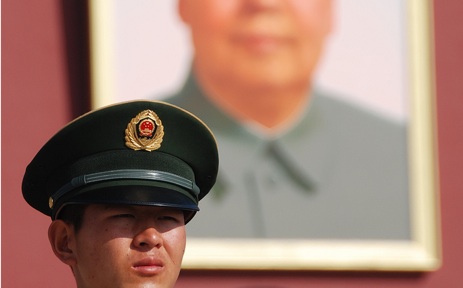 Image: Tomás Moreno Oliger
Image: Tomás Moreno Oliger
There’s a scene in Gary Shteyngart’s brilliant, pathos-drenched satire of the near future, Super Sad True Love Story, in which New York City waits, breathlessly, for the arrival of China’s premier, who now literally owns the U.S. In the book, as in the past week, when the premier arrives, the dollar takes a hit. Only, in Shteyngart’s world, it becomes completely worthless and is instantly converted into the yuan — something that might yet be in our future.
Shteyngart captured Americans’ unease with our ebbing global economic and military hegemony, which happens to coincide with China’s blisteringly fast ascent. Witness all the hand-wringing this week accompanying Chinese President Hu Jintao’s visit, over everything from what he was served at the White House state dinner to the two countries’ “frenemy” status when it comes to clean energy and climate change.
Is China winning the race to build clean energy technology? Maybe. When we lost the first leg of the space race to Sputnik in the ’50s, President Eisenhower started not one but two space agencies — NASA and the lesser-known Advanced Research Projects Agency (now DARPA, part of the Department of Defense). The former took us to the moon, and the latter brought us the internet.
Could something analogous happen today? Don’t bet on it. In the current political and fiscal climate, there is little appetite for such grand projects. There isn’t even acceptance of the basic scientific consensus around climate change, or the positive potential of clean technology.
Our democracy is very good at some things. No one is ever going to shut down your local power plant when you’re experiencing sub-zero temperatures just so they can meet national energy-saving targets, which happened last week in China. But a democracy can also be a very slow ship to steer, especially when a great deal of change is needed in a short amount of time.
China, on the other hand, has a strong national committee that determines the overall direction of the nation’s economy via a succession of five-year plans. The next, to be released in March, will include even more plans for clean energy development, as well as a formal adoption of China’s pledge to reduce the amount of carbon pollution it emits per unit of production by 40 to 45 percent.
China has a sovereign wealth fund — basically a giant checking account for buying whatever it wants, which at this point appears to be natural resources — of more than $300 billion, while the U.S. carries $14 trillion in national debt, mostly owed to you-know-who. At the same time, China invested twice as much as the U.S. in clean energy in 2009 — $34.6 billion versus $18.6 billion.
Is a nation ruled somewhat autocratically by engineers and scientists better equipped to confront the 21st century than a nation that has always been suspicious of intellectuals, a nation increasingly ruled by the checkbooks of lobbyists and the entrenched industries they represent? It would be horrible, if it were true, and this is the unconquerable nut of the problem the U.S. now faces: if we can’t get it together to transition to a sustainable resource base, what hope is there for the co-occurrence of both democracy and lasting material civilization?


